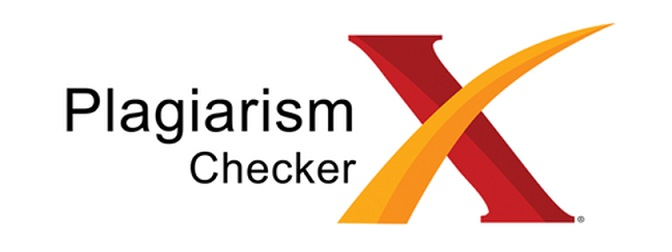LEGAL PROTECTION FOR CONSUMERS DUE TO EXPIRED FOOD PRODUCTS BASED ON LAW NO. 8 OF 1999 CONCERNING CONSUMER PROTECTION
DOI:
https://doi.org/10.55681/seikat.v2i5.958Keywords:
Legal Protection, Consumers, Expired Food ProductsAbstract
This research is aimed at answering questions about the government's role in protecting consumers. to food products, and the responsibility of producers to consumers in handling consumer complaints related to food products that are not suitable. This is a qualitative research with a normative legal research approach, namely library law research. The procedure in this study was carried out by selecting themes, exploring information, determining research directions, collecting data sources, presenting data, and compiling research reports. Meanwhile, this study used qualitative data analysis techniques based on literature data about research variables. The results of this study indicate that the government's role in protecting consumers against food and beverage products that have expired is to develop consumer protection in Indonesia and to implement law enforcement on applicable laws and regulations.A form of consumer protection provided by the government as a protector of the consumer community and also as a coach for business actors. While the handling of consumer complaints related to the circulation of expired food products is carried out by the Food and Drug Monitoring Agency (BPOM) by opening a service unit that accommodates all consumer complaints.
Downloads
References
Adi Nugroho. (2000). Perilaku Konsumen, Cetakan Pertama. Jakarta: Studia Press. Hal.3.
Anggito, Albi & Johan Setiawan. (2018). Metodologi Penelitian Kualitatif. Sukabumi: CV Jejak. Assauri. Hal 7.
Denney, A. S., & Tewksbury, R. (2013). How to write a literature review. Journal of Criminal Justice Education 24(2), 218-235.
Galanter, et al. (1995). Contrac: Law In Action. Virginia: The Michie Company, Charlottesville, Hal.554.
Garman, E. Thomas. (1991). Consumer Economic Issues In Amerika. Boston: Houghton Mifflin Company.
Howard Beales, Richard Craswell and Steven C Salop. (1981). The Efficient Regulation of Consumer Information. Journal of Law and Economics, Vol. 24, issue 3, 491-539.
Inosentius Samsul. (2004). Perlindungan Konsumen Kemungkinan Penerapan Tanggung Jawab Mutlak. Jakarta-FH UI, Pascasarjana.
Kimberly Jade Tilman, (1986). Prodict Defect Resulting In Pure Economic Loss: Under What Theory Can a Consumer Recover. Journal Of Product Liability, Vol.9, 1986, Pergamon Journal, Printed in USA, hal. 276.
Krippendorff, K. (2004). Content An Introduction to Analysis Its Methodology. University of Pennsylvania. Sage Publications.
Kuhltau, C. C. (2002). Teaching The Library Research. USA: Scarecrow Press Inc.
Rajagukguk, Herman. (2000). Peranan Hukum Di Indonesia: Mejaga Persatuan, Memulihkan Ekonomi dan Memperluas Kesejahteraan Sosial, Jakarta: Makalah disampaikan dalam rangka Dies Natalis dan Peringatan Tahun Emas Universitas lndonesia, 5 Februari 2000), hal.6.
Rusmawan, U. (2019). Teknik Penulisan Tugas Akhir dan Skripsi Pemrograman - Pengertian ERD. Marlinda. Hal 104.
Sabarguna, Boy.S. (2005). Analisis data pada penelitian kualitatif. Jakarta : UI-Press, 2005
Shidarta. (2014). Hukum Perlindungan Konsumen Indonesia. Jakarta: Grasindo. hal. 40-43.
Sidabalok. Janus. (2006). Hukum Perlindungan Konsumen di Indonesia. Bandung: PT. Citra Aditya Bakti.
Sofie, Yusuf. (2000). Perlindungan Konsumen dan Instrumen-Instrumen Hukumnya. Cetakan kesatu, Bandung: Citra Aditya Bakti. Hal. 249.
Sugiyono (2015). Metode Penelitian Kombinasi (Mix Methods). Bandung: Alfabeta. Hal 329.
Sugiyono. (2012). Memahami Penelitian Kualitatif”. Bandung : ALFABETA. Hal 244.
Suherman, Ade Maman, (2005). Aspek Hukum dalam Ekonomi Global. Jakarta: Ghalia Indonesia.
Indonesian Laws
Decree of the Director General of Drug and Food Control (POM) Number 02240/B/SK/VII/91 concerning Guidelines for Quality Requirements and Food Labeling and Advertising
Decree of the Director General of Drug and Food Control (POM) Number 02240/B/SK/VII/91 concerning RI Law no. 7 of 1996 concerning Food, Director General of Islamic Community Guidance and Implementation of Hajj, 2003.
Decree of the Head of the Food and Drug Supervisory Agency Number HK.00.05.2.4321 concerning Decree of the Head of BPOM No. HK. 00.05.23.0131 concerning Inclusion of Origin of Certain Materials.
Joint Decree of the Minister of Health and the Minister of Religion of the Republic of Indonesia No. 427/Men.Kes/SKB/VIII/1985 concerning Inclusion of HALAL Writing on Food Labels
Civil Code (KUHP) Article. 1367 verse (1)
Guidelines for Quality Requirements and Food Labeling and Advertising
General Guidelines for Labeling of Food Products, December 4, 2003.
Republic of Indonesia Minister of Health No. 329/MENKES/FER/XII/76 Concerning Food Production and Distribution
Republic of Indonesia Minister of Health No. 180/MENKES/PER/IV/1985 Concerning Expired Food
Government Regulation Number 28 of 2004 concerning Food Safety, Quality and Nutrition.
Government Regulation Number 69 of 1999 concerning Food Labels and Advertisements.
Regulation of the Minister of Health of the Republic of Indonesia Number 180/Men.Kes/Per/IV/1985 concerning expired food, April 10, 1985.
Government Regulation No.17 of 2001 concerning Tariffs on Types of Non-Tax State Revenue (PNBP) that apply to BPOM
Law Number 8 of 1999 concerning Consumer Protection
Law No. 7 of 1996 concerning Food
Law Number 23 of 1992 concerning Health
Downloads
Published
How to Cite
Issue
Section
License
Copyright (c) 2023 SEIKAT: Jurnal Ilmu Sosial, Politik dan Hukum

This work is licensed under a Creative Commons Attribution-ShareAlike 4.0 International License.












